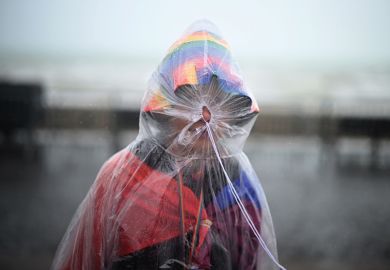Rosalind Pritchard, emeritus professor of education at Ulster University, is reading Barack Obama’s A Promised Land (Penguin, 2020). “This is a long book, but lightened by human qualities such as the author’s gentle self-deprecation. He is aware of being long-winded: ‘if every argument had two sides, I usually came up with four’; if criticised, he’d ‘provide footnotes’. He is frank in his pen portraits of world figures: Angela Merkel looks at Nicolas Sarkozy, who is ‘all emotional outbursts and overblown rhetoric…the way a mother eyes an unruly child’. Public events and family reactions are endearingly mingled: ‘Great news, Daddy,’ his elder daughter exclaims, ‘you won the Nobel prize – and it’s Bo’s birthday’ (Bo is the family dog). His political dream of rebuilding trust is vitiated by the relentless partisanship of American politics, to the extent that opposition to Obama seems to be ‘the unifying principle’ of the GOP. His only action that is universally approved is the killing of Osama bin Laden.”
Lincoln Allison, emeritus reader in politics at the University of Warwick, is reading Victoria Hislop’s Those Who Are Loved (Headline, 2019). “This novel takes the history of Greece from the 1930s to the present and fleshes it out as the story of an Athenian family as they live through world war and occupation, civil war, the ‘colonels’ and beyond, as well as emigration to Germany and the US. It is well written without being gripping. On previous occasions, I have put down a ‘historical’ novel, irritated by the licence involved, and have searched out a parallel history replete with statistics and alternative interpretations, but here I stayed to the end – where there is a list of questions for reading groups. In my patronising way, I think novels like this are a good thing because they are the only history many people are ever going to read, but I also think they are facile and potentially propagandist.”
Karen McAulay, performing arts librarian and postdoctoral researcher at the Royal Conservatoire of Scotland, is reading Sean Reidy’s Dunbrody, A Famine Odyssey: How JFK’s Roots Helped Revive an Irish Town (Sean Reidy, 2020). “A book about tourism, fundraising and shipbuilding is not my usual reading matter, although I do have an interest in the cultural implications of historical emigration. So I was keen to learn more about the project to put the failing Irish town of New Ross back on the tourist map, drawing upon the connection with J. F. Kennedy’s family in the mid-19th century. Reidy was the CEO of the JFK Trust in New Ross from 1991 to 2014 and masterminded this bold initiative as well as the building of a replica of an Irish famine ship, The Dunbrody. If lessons are to be learned, then this project is an admirable blueprint, even though there were times when all was not ‘plain sailing’.”
Register to continue
Why register?
- Registration is free and only takes a moment
- Once registered, you can read 3 articles a month
- Sign up for our newsletter
Subscribe
Or subscribe for unlimited access to:
- Unlimited access to news, views, insights & reviews
- Digital editions
- Digital access to THE’s university and college rankings analysis
Already registered or a current subscriber? Login








